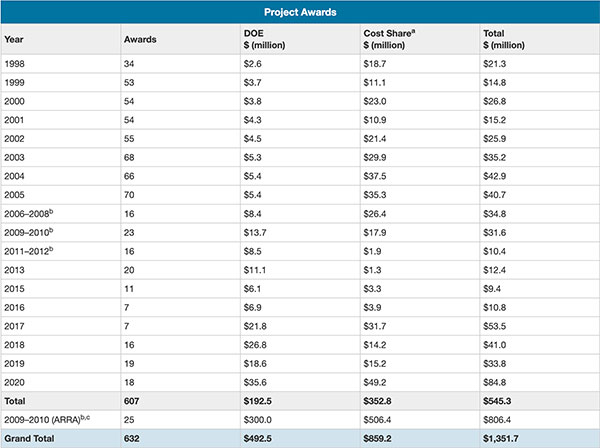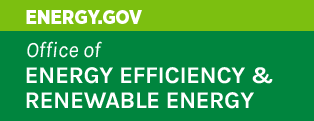Funded Projects
The U.S. Department of Energy's Vehicle Technologies Office (VTO) has awarded more than $570 million since 1998 through its funding opportunities in support of Technology Integration Program projects across the country that advance deployment of efficient and sustainable transportation technologies. These project awards contribute to empowering community transitions to clean energy transportation, facilitating strategic zero emission vehicle and infrastructure deployment, and investing in workforce development for a clean energy future.
This is a partial list of recently funded Technology Integration Program projects:
- Integrating alternative fuel vehicles and fueling infrastructure in urban and rural communities.
- Implementing living lab projects that demonstrate and assess new mobility solutions that maximize the return on investment to mobility systems in terms of time, cost, energy, and opportunity.
- Developing alternative fueling and charging stations along busy transportation corridors.
- Providing resiliency planning through diversified vehicle and fueling options.
- Securing real-world data on total cost of ownership for alternative fuels.
- Planning community-driven transportation decarbonization in underserved communities.
- Understanding transportation electrification in public and private fleets.

DOE VTO transportation projects are competitively awarded and cost-shared. Coalition-supported projects have historically leveraged almost 2:1 in matching funds and in-kind contributions from private and public sector partners.
For summaries of project lessons learned that could be leveraged for curbside EV charging, EV car share, EV charging for multifamily housing, or EV mobility hubs projects, see Considerations for Clean Cities and Communities Projects.
